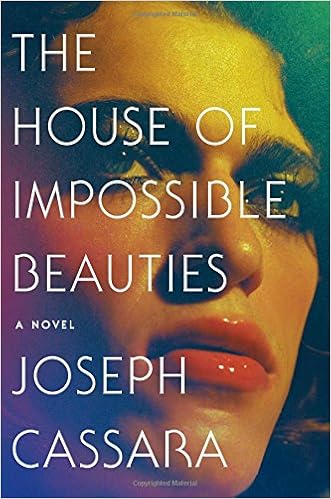
The House of Impossible Beauties by Joseph Cassara review – disco, drag and tragedy and a vibrant tribute to the stars of a cult queer documentary about New York’s ball scene in the 80s
This debut novel follows the lives of the major players in New York’s 1980s drag ball scene, made famous by Jennie Livingston’s 1990 film Paris Is Burning. With an admirable ear for the slang of the LGBT underground it depicts, the book imagines how they came to terms with their genders and sexualities, found their communities, negotiated the pressures of racism and queer-bashing and confronted the terrifying emergence of HIV/Aids – or, as it is referred to here, “the virus”.
This is a novel about family. It captures the ways in which the protagonists have been damaged by their own families and the pressures to conform to conventional ideals of masculinity, and shows how the all-Latino House of Xtravaganza, a group founded by Hector Valle in 1982 to compete in the balls, took them in and looked after them.
The House of Impossible Beauties is especially strong at detailing the sadness of queer life. Whether black or Hispanic, these are people who live on the periphery of society, shoplifting or doing sex work to survive. And there’s another deeper tragedy: having endured so much trauma in the “straight” world, this pain can only reverberate around their tight-knit communities. As a result, the characters hurt each other, and themselves, in ways that are scarcely imaginable. Cassara realises that, often, he barely needs to add to the real-life tragedies of the House of Xtravaganza, familiar to anyone who has seen the film.
This is not a bleak novel, however – far from it. The scenes of love and support between the characters have a kindness that more than matches the sadness, and the dialogue, peppered with early 80s disco or TV references and “Spanglais” dialect, is frequently hilarious. (I particularly liked the recurring disdain for the musical Cats.) Many of these lives were all too short, and deserved far more than Paris Is Burning’s 78 minutes. The House of Impossible Beauties does not provide full biographies of its leading figures such as Angie Xtravaganza, Venus Xtravaganza or Dorian Corey, perhaps using fiction where their friends and acquaintances were unable, or unwilling, to fill in the gaps, but it does offer a convincing insight into the world in which they lived.
No comments:
Post a Comment